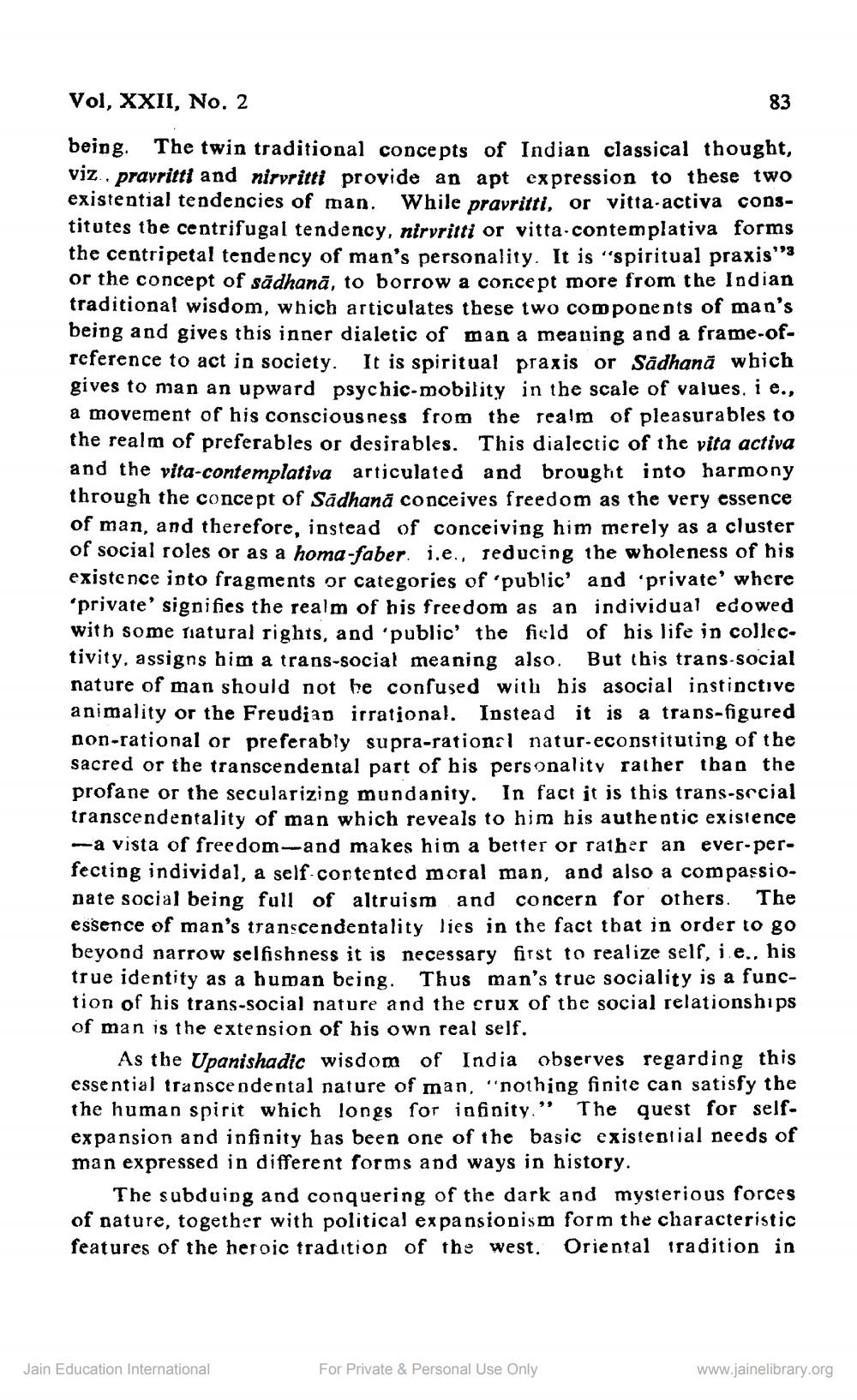________________
Vol, XXII, No. 2
83
being. The twin traditional concepts of Indian classical thought, viz., pravritti and nirvritti provide an apt expression to these two existential tendencies of man. While pravritti, or vitta activa congtitutes the centrifugal tendency, niryritti or vitta contemplativa forms the centripetal tendency of man's personality. It is "spiritual praxis"'3 or the concept of sādhanā, to borrow a concept more from the Indian traditional wisdom, which articulates these two components of man's being and gives this inner dialetic of man a meaning and a frame-ofreference to act in society. It is spiritual praxisor Sadhanā wbich gives to man an upward psychic-mobility in the scale of values, i e., a movement of his consciousness from the realm of pleasurables to the realm of preferables or desirables. This dialectic of the vita activa and the vita-contemplativa articulated and brought into harmony through the concept of Sadhanā conceives freedom as the very essence of man, and therefore, instead of conceiving him merely as a cluster of social roles or as a homa-faber. i.e., reducing the wholeness of his existence into fragments or categories of public and private' where 'private' signifies the realm of his freedom as an individual edowed with some natural rights, and public' the field of his life in collectivity, assigns him a trans-social meaning also. But this trans-social nature of man should not be confused with his asocial instinctive animality or the Freudian irrational. Instead it is a trans-figured non-rational or preferably supra-rational natur-econstituting of the sacred or the transcendental part of his personality rather than the profane or the secularizing mundanity. In fact it is this trans-srcial transcendentality of man which reveals to him his authentic existence
a vista of freedom--and makes him a better or rather an ever-perfecting individal, a self-contented moral man, and also a compassionate social being full of altruism and concern for others. The essence of man's transcendentality lies in the fact that in order to go beyond narrow selfishness it is necessary first to realize self, i.e., his true identity as a human being. Thus man's true sociality is a function of his trans-social nature and the crux of the social relationships of man is the extension of his own real self.
As the Upanishadic wisdom of India observes regarding this essential transcendental nature of man, "nothing finite can satisfy the the human spirit which longs for iofinity." The quest for selfexpansion and infinity has been one of the basic existential needs of man expressed in different forms and ways in history.
The subduing and conquering of the dark and mysterious forces of nature, together with political expansionism form the characteristic features of the heroic tradition of the west. Oriental tradition in
Jain Education International
For Private & Personal Use Only
www.jainelibrary.org




